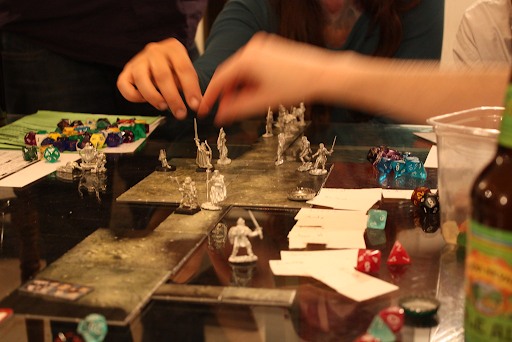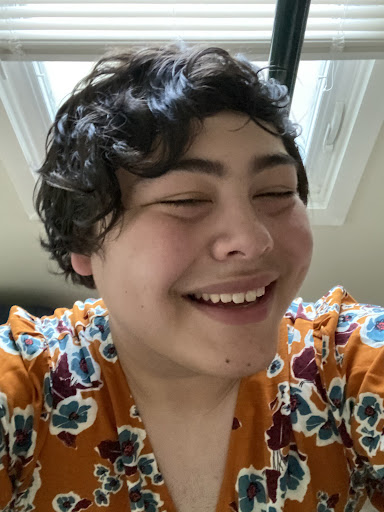Dungeons & Dragons (D&D) is a tabletop roleplaying game first released in 1974 that has amassed a plethora of official and homemade content since its creation 50 years ago. The game has maintained a relatively niche group of consumers for most of its run but a surge in popularity in the past decade has expanded the player base tremendously.
Whether it is due to its inclusion in popular media such as Stranger Things or this year’s film Dungeons & Dragons: Honor Among Thieves, the game has experienced revenue growth consistently for the past few years and reached its all-time high in 2020, with a 33% revenue jump.
With an influx in interest, many find themselves intrigued by the idea of playing Dungeons and Dragons but are unsure how to play and where to start. Despite the abundance of official books and rule sets, all that is required to play is a group of friends, some pencil and paper, and a set of dice. Sometimes, not even those components are necessarily required.
The key to understanding Dungeons & Dragons is realizing there is no correct way to play. While there are hundreds of pages on rules and statistics made for the game, they act as more of a suggestion. The group of players that make up a game of D&D form the narrative of how they play. The rules are supposed to act more as suggestions than concrete restrictions. It is important to keep in mind that every group of people is different in how they may wish to play, which is why unique group dynamics are integral to the game’s function.
Finding a group of people who wish to play is a perfect place to start. A group of friends could be preferable for playing as every member will likely know one another beforehand. However, it isn’t an uncommon experience for many players to not have a group of friends interested in playing.
Groups dedicated to forming D&D groups exist online, though they are not for everyone. Strangers can be difficult to play with due to the lack of previous connection and the internet can connect people with ill intent very easily. However, the online games of D&D work out better for many who have scheduling issues or simply have nobody to play with in person.
While groups vary in size, a group of four to five is recommended with one individual taking on the role of the GM (Game Master). The GM will more or less act as the narrator of the game and guide the rest of the group through a story they wish to tell. The rest of the group takes on the role of a player and will create a character to play through the aforementioned story.
The stories that D&D groups play through are titled “campaigns” which is a term referencing the story as a whole. The campaign can involve a few sessions before reaching a conclusion, or it can involve a series of multi-hour sessions that involve group meetings and playing every weekend for several years. The longevity of the game is the choice of the players, and its contents are decided by all involved.
When composing a group of players, there should be a discussion amongst the group about what they want from the game. Do they want a high fantasy adventure on slaying dragons and amassing loot? Or perhaps a crime-centered political drama in a shifty fictional city? Or maybe there is something entirely different in mind. There should be open communication so everybody finds something that appeals to them, and it may involve some trial and error at first. The GM may write a campaign with plenty of combat and tense encounters against an army of goblins, but the players could find they like to negotiate with the goblins over dinner and would like to befriend them. Experimenting with ideas and pivoting is encouraged.
There should also be some discussion on the contents of the campaign. Some players may be comfortable with visceral descriptions of violence and devastation, while others may prefer keeping the descriptors of gore to a minimum. Discomforts and fears of the players outside of their characters should deeply be considered just to maintain a healthy and safe space for all. After all, it is supposed to be a fun and engaging game and not a dreadful three hours.
Additional thought should go to the availability in the schedules of those playing. D&D is a very time-consuming game and scheduling a session to play may take some open conversation between the group. Establishing a schedule weeks in advance can help create a sense of consistency in sessions and player availability.
Dungeons & Dragons is an incredibly influential game that has been prevalent in pop culture for many decades. While group formation is the starting point of beginning a game, there is much more to consider before jumping in. However, if it is something of interest, it is worth looking into for the aspects of creativity and community it provides.








